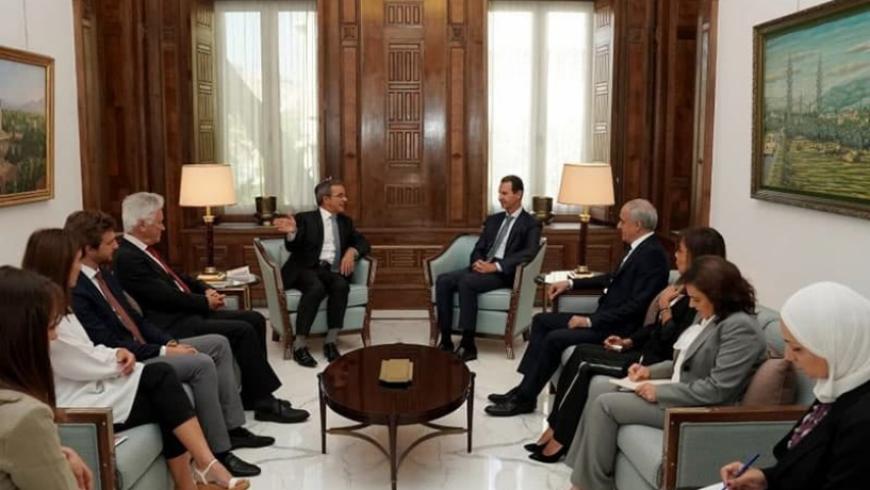Recent years have seen a significant rise of far-right parties in Europe and other parts of the world. These parties carry racist features in their literature, programs and policies. This has been reflected in the results of elections in many Western countries, from Sweden in the north to Italy in the south.
Some of these parties have almost arrived, such as Marie Le Pen, the leader of France’s far-right party, or they can participate in the formation of their country’s governments.
This was reflected in the position of some European countries that are now demanding normalization with the Syrian regime. Foreign Policy revealed a few days ago pressure was exerted by Greece, Cyprus, Italy, Hungary, Austria and Poland within the European Union to change policies in line with the regime’s interests.
Most of these parties have shared their support for dictatorships in the Arab region, led by Syrian President Bashar al-Assad, and their hostility to refugees and migrants. This raises questions about the impact of their access to decision-making positions on the situation of Syrians in their country.
Supporting Assad: Common Goal
The description of the “far right” refers to political currents that adopt an extreme tendency to be hostile to Muslims, Jews, and foreigners and have an extreme attachment to national values, and political, cultural and linguistic identity.
According to a previous investigation by New Lines, a French NGO with links to the far right in France supported militias affiliated with the Assad regime.
An investigation by the magazine published in 2021 revealed the involvement of the French organization Save the Christians of the East, with the support and funding of militias affiliated with the Assad regime, convicted of war crimes.
Followers of the far right in France do not hesitate to admire Bashar al-Assad and his supporter, Vladimir Putin, who is described as the “prophet” of this category.
Among the names circulating in this context are the Golden Dawn party in Greece, which describes the Syrian opposition to Assad as a “group of killers,” the Forza Nova party, the CasaPound movement in Italy, as well as Spanish, Belgian, Polish, Hungarian nationalist currents, and other European countries including Denmark. Right-wing parties in Denmark in February 2021 carried out a campaign demanding that Syrians return to “sunny Syria, your country needs you,” as described by the slogans they launched.
There is also the European Front for Solidarity for Syria, founded in 2013 by figures from several European countries, including the Netherlands, Finland, Spain and Italy.
In Germany, the far-right Alternative Party began to recover in the recent elections to take the lead, taking advantage of the energy crisis. It is one of the parties calling for openness and cooperation with Bashar al-Assad. In recent years, delegations have repeatedly visited Syria to meet with regime officials and promote his narratives, calling on Syrian refugees in Germany to return, and placing this among its political projects.
Syrians fear ‘right’
With regard to the migration issue, there were fears among many Syrians in Europe of the right-wing parties’ hostility to refugees and migrants. This coincides with their calls to refloat Assad, justify his crimes, and even encourage them.
In their view, refugees and migrants pose a threat to the culture and identity of European society, and claim that they have negative effects on employment opportunities and the quality of social, health and community services.
Interestingly, many of the members of these parties and their deputies are of Middle Eastern or North African origin, however, do not shy away from their hatred of their compatriots and even enjoy dictatorships.
In Germany, Syrian-Armenian refugee Kevork Almassian, a member of the extremist Alternative for Germany, boasts of his support for the Syrian regime and Bashar al-Assad, an instigator against Syrian refugees. German authorities have rejected his asylum application because the regime’s threats do not extend to him, which has angered his party.
This article was translated and edited by The Syrian Observer. The Syrian Observer has not verified the content of this story. Responsibility for the information and views set out in this article lies entirely with the author.


